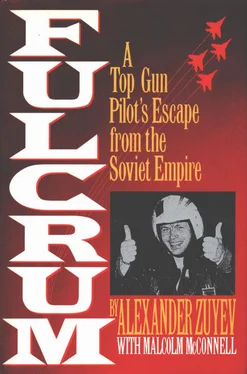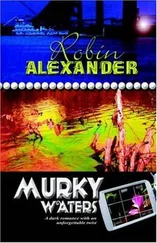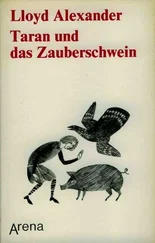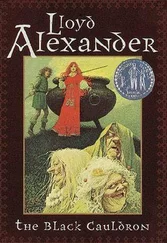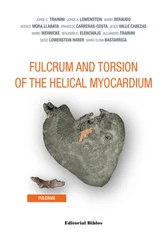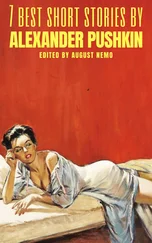He was too strong for me to drag down by brute force, so I slipped sideways, jamming my right shoulder against his chest while shifting my grip to his right sleeve and collar to flip him. This was one of the most basic and effective maneuvers in mat wrestling. But there was no mat here to protect my opponent from injury.
He flipped perfectly and came down hard, flat on his back. I heard the breath whistle from his open mouth. He should have been knocked out, but his thick, padded coat protected him.
I was on top of Chomayev now, about to club him senseless. But he was too fast. He rolled away and was suddenly on top of me, his fists pounding. I now realized that Chomayev knew something about self-defense. He was a good barracks-room amateur, not highly skilled. That made him dangerously unpredictable.
I flailed my legs and twisted away. Struggling to my feet, I dragged him up from the concrete. It was better to fight him upright. He had me by the front of my jacket now, and we grappled like two drunks in a street fight. But I controlled the situation, forcing him four or five yards in front of the aircraft, away from the rifle.
Chomayev had the front of my jacket twisted stubbornly in both his hands. No matter how I jerked and pushed him, he would not let go. I tried to trip him, but he dodged away. I had to drag him down again to break that grip. This was an awkward way to drop an opponent, but he gave me no other opening.
Too late, I saw the maneuver was not going to work. As I bent, putting my strength into dragging him down, Chomayev reared back. And when he finally fell off balance, his weight crashed onto my shoulders. My forehead smashed into the cold concrete. For a moment I saw a pinwheeling explosion of neon-yellow stars before my eyes. I had almost been knocked unconscious.
Fighting the dizziness, I pushed Chomayev underneath me and pounded his face with three hammerblows. But my right was not working well. The thumb would not close into a proper fist. I knew that I was weakened by the blow to my head and that I had to finish this fight quickly, before Chomayev got lucky and did some real damage.
I dragged him back to his feet, hoping to body-throw him again so that his head would smash into the apron even harder than mine had.
Chomayev responded by grabbing my jacket again with both hands. I held his collar as best I could with my right hand and slammed at his face with my left fist. The shoddy material of the coat collar tore away, and Chomayev could dodge some of my blows.
“Litovkin!” Chomayev screamed, calling for his friend in the guardroom of the maintenance control tower one hundred yards to the left. But I had checked the guard post and knew it was empty. “Litovkin… help me!” Chomayev yelled again. Each time I struck him, Chomayev yelled for his friend.
This young Tatar soldier would simply not go down. I tried to strike him with a karate punch in a vulnerable spot, the sternum, throat, or the notch where the bridge of his nose joined his skull. But my left hand was clumsy, and when I tried to strike with my right, my damaged thumb would not move into a proper fist. Despite the blows, Chomayev clung tightly to my leather jacket.
I kicked his knees viciously several times to weaken him. Still, he would not back off so that I could hit him a crippling blow. This fight was not going to end without bloodshed. I dug my left hand into the front pocket of my jacket and managed to flip open the blade of my Gypsy knife. But I had to pull the knife free in order to lock the blade.
Chomayev saw the blade flash and again bellowed hoarsely like a startled animal. He broke free and dove backward for his rifle. I dropped the knife and scrambled to the right to retrieve my pistol. As I bent to snatch up the Makarov, I heard Chomayev cocking the bolt of his AKM.
I rose and spun in one motion, bringing up my pistol in a two-handed combat grasp to sight on his chest. He was only three yards from me, crouching beneath the nose of the number three fighter, raising his rifle toward me. I saw the muzzle swing to level at my chest. But Chomayev was not braced well to fire, and the AKM always pulled hard right. In survival school we had been taught to sway like a serpent to confuse an enemy firing at close range. I swayed to my right just as Chomayev fired. The muzzle flashed with a short tongue of red flame. The burst cut through the air to my left, the bullets rasping loudly as they passed over my shoulder.
I aimed at his torso and fired deliberately, cupping my right hand with my left to steady the gun. He was so close that I kept both eyes open as I fired. This was not a pistol range. I swayed to the left now as Chomayev swung his rifle muzzle back, correcting his fire.
Then Chomayev screamed as one of my bullets hit. He rolled over under the number three plane, but managed to fire a second, shorter burst. The bolt slide of my pistol sprang open. I had fired eight rounds and the magazine was empty. This was no place to reload.
I dashed around the nose of the airplane and sprinted toward the tail of the number two aircraft. Chomayev pivoted under the nose of the third plane and fired another burst. His aim was off. The bullets howled all around me, several whipping between my legs as I ran. Then my upper right biceps was seared by a hot knife of pain. A bullet had clipped me.
The plane to my left was hit several times in the nose and left wingroot. Jet fuel leaked to the concrete. But I knew there was no danger of explosion because the tanks had been purged with inert gas. Reaching the tail of the second lane, I was past Chomayev’s field of fire. I stopped and reloaded my pistol with the spare magazine.
Chomayev was out of sight. I knew he was wounded, maybe fatally. But I had no time to waste. He had fired a full thirty-round magazine. And the alert staff in the operations control tower behind me must have heard the noise, as had those men still awake in the duty-alert building next door to the tower.
I would fly the number one plane, the aircraft furthest from the ramp guard, four hundred yards to my left. Dashing behind the fighter’s tail, I turned and ducked under the right wing. I had to work fast but carefully to prepare the plane for takeoff. One mistake now could mean the end. I bent at the right main landing gear and dragged the heavy red steel wheel chock away from the tire. Despite the blow to my head, I was thinking clearly. If I left the chock here on the ground, Chomayev might manage to sneak back and replace it on the wheel while I was up in the cockpit. The wheel chock had tempered steel claws that would dig into the pitted concrete of the apron, anchoring me in place. So I tossed the chock up onto the right wing, too high for Chomayev to recover.
I scurried forward to the big rectangular inlet of the right engine, which was protected by a tan nylon ground cover. I jerked the pins from the restraining cord and stripped away the cover, then ducked under the nose to pull off the cover on the left engine inlet. After dragging the wheel chock from the left main gear, I found my right arm was going numb and I didn’t have enough strength to lift the heavy steel chock to the wing. Instead I tossed it backward, clanking on the concrete apron, toward the tail.
As I bent, I saw the long centerline belly tank that held a ton of fuel. Every jet fighter pilot valued fuel. But I knew I would have to drop the tank soon after takeoff. The 30mm cannon in the left wingroot could not be fired while the fighter carried the external tank.
And I certainly intended to fire the cannon. This escape was much more than one man’s personal liberation. I planned to avenge the innocent Georgians killed and maimed in the brutal Tbilisi massacre forty days before. After takeoff I would loop back on a cannon run and destroy twelve of the regiment’s MiG-29s parked in a neat line on the ramp to my left.
Читать дальше
